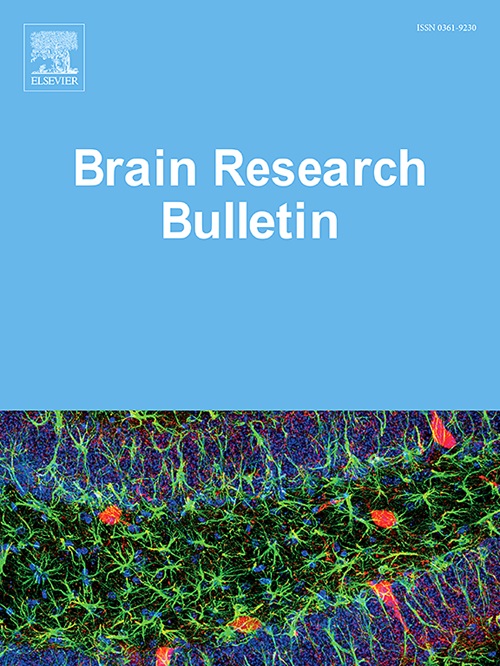Aβ低聚物促进星形胶质细胞的脂滴积累和炎症反应,而不是神经元。
IF 3.7
3区 医学
Q2 NEUROSCIENCES
引用次数: 0
摘要
脂滴(ld)是细胞脂质稳态的动态细胞器。新出现的证据暗示ld在阿尔茨海默病(AD)的发病机制中,尽管它们的细胞类型特异性作用仍然不明确。在这里,我们研究了淀粉样蛋白- β寡聚物(a - β o)对初级星形胶质细胞和神经元中ld积累、氧化应激和炎症激活的影响。我们发现a - β o选择性地触发星形胶质细胞中强大的ld形成,伴随着甘油三酯(TG)和胆固醇(TC)含量的显著增加,以及ld相关蛋白pilipin 2 (PLIN2)的上调。此外,a - β o诱导明显的氧化应激,表现为丙二醛(MDA)和4-羟基壬烯醛(4-HNE)升高,并通过增加星形胶质细胞中肿瘤坏死因子α (TNF-α)和白细胞介素-1β (IL-1β)的分泌促进炎症活化。相比之下,在相同的治疗条件下,神经元在脂质代谢、氧化应激或炎症反应方面没有显着变化。我们的研究结果强调了星形胶质细胞在a β o诱导的代谢和炎症失调中的核心作用,揭示了一种细胞类型特异性易感性,可能与AD的发病机制有关。这些体外研究结果为以脂质为中心的治疗策略提供了机制基础,有待进一步的体内验证。本文章由计算机程序翻译,如有差异,请以英文原文为准。
Aβ oligomers promote lipid droplet accumulation and inflammatory responses in astrocytes but not neurons
Lipid droplets (LDs) are dynamic organelles central to cellular lipid homeostasis. Emerging evidence implicates LDs in Alzheimer’s disease (AD) pathogenesis, though their cell-type-specific roles remain poorly defined. Here, we investigated the effects of amyloid-beta oligomers (AβOs) on LDs accumulation, oxidative stress, and inflammatory activation in primary astrocytes and neurons. We found that AβOs selectively triggered robust LDs formation in astrocytes, accompanied by significant increases in triglyceride (TG) and cholesterol (TC) content, and upregulation of the LD-associated protein perilipin 2 (PLIN2). Furthermore, AβOs induced pronounced oxidative stress, evidenced by elevated Malondialdehyde (MDA) and 4-hydroxynonenal (4-HNE), and promoted inflammatory activation via increased secretion of tumor necrosis factor α (TNF-α) and interleukin-1β (IL-1β) in astrocytes. By contrast, neurons showed no significant changes in lipid metabolism, oxidative stress, or inflammatory responses under identical treatment conditions. Our results underscore the central role of astrocytes in AβO-induced metabolic and inflammatory dysregulation, revealing a cell-type-specific vulnerability with potential implications for AD pathogenesis. These in vitro findings provide a mechanistic basis for lipid-focused therapeutic strategies, pending further in vivo validation.
求助全文
通过发布文献求助,成功后即可免费获取论文全文。
去求助
来源期刊

Brain Research Bulletin
医学-神经科学
CiteScore
6.90
自引率
2.60%
发文量
253
审稿时长
67 days
期刊介绍:
The Brain Research Bulletin (BRB) aims to publish novel work that advances our knowledge of molecular and cellular mechanisms that underlie neural network properties associated with behavior, cognition and other brain functions during neurodevelopment and in the adult. Although clinical research is out of the Journal''s scope, the BRB also aims to publish translation research that provides insight into biological mechanisms and processes associated with neurodegeneration mechanisms, neurological diseases and neuropsychiatric disorders. The Journal is especially interested in research using novel methodologies, such as optogenetics, multielectrode array recordings and life imaging in wild-type and genetically-modified animal models, with the goal to advance our understanding of how neurons, glia and networks function in vivo.
 求助内容:
求助内容: 应助结果提醒方式:
应助结果提醒方式:


